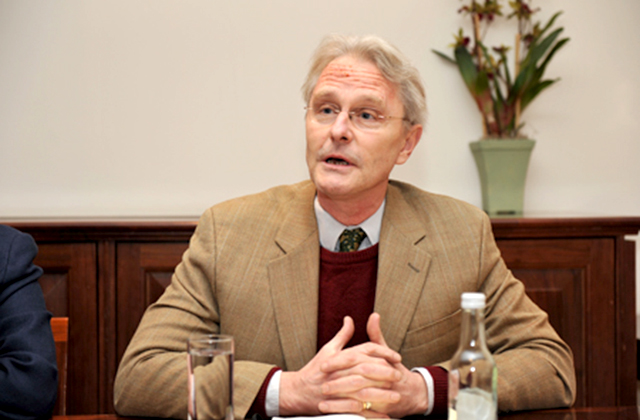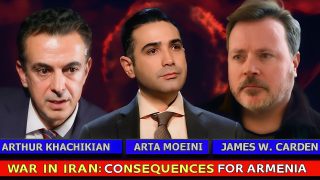Why was Armenia-EU agreement initialed without special ceremony and noise?

“Armenia-EU comprehensive partnership agreement doesn’t suppose association with the European Union,” Neil Macfarlane, professor of International Relations at Oxford University, specialist on Russia and the South Caucasus, PhD in political science told 168.am, reflecting to initialing of Armenia-EU comprehensive and expanded partnership agreement.
On March 21 Foreign Minister Edward Nalbandian held a meeting with Luc Devigne, Director for Eastern Partnership, Russia, Central Asia and OSCE at European External Action Service and Petros Sourmelis, Head of DG Trade Unit at the European Commission. On behalf of Armenia the agreement was initialed by Deputy Foreign Minister Karen Nazaryan, First Deputy Minister of Economic Development and Investments Garegin Melkonyan. On behalf of the EU the document was initialed by Luc Devigne and Petros Sourmelis. President of Armenia Serzh Sargsyan and President of the European Council Donald Tusk on February 27 announced in Brussels on ending Armenia-EU talks over comprehensive and expanded partnership agreement.
“This new agreement will expand our cooperation framework by taking into account new global political and economic interests that we share and the challenges we want to overcome together. We expect closer cooperation in spheres like energy, transportation and environment, trade and new investment opportunities and further expanded movement for the benefit of our citizens,” Donald Tusk said.
It’s noteworthy that the sides were preparing for initialing Armenia-EU Association Agreement (AA) negotiated three years ago, it should have held within EaP Vilnius summit, moreover, the agreement was to be initialed on the highest level—by Armenia’s president. After failure of AA the ceremony of initialing the future agreement was even a surprise for the expert and media community.
In particular, asked why the agreement was initialed so unexpectedly and without a special ceremony, and why prior to upcoming parliamentary elections in Armenia, the expert said it should be taken into consideration that this was the ceremony of initialing. According to him, particularly after Vilnius summit almost all initialing and signing ceremonies are held under not so ceremoniously.
“It may sound strange, but this has psychological reasons. The EU actively prepared for signing the association agreements with four EaP countries in Vilnius, it was touched upon for months, however, on the threshold of Vilnius there was a surprise in case of two countries, which was a blow to the EU, a bigger one was Ukrainian war, after which the EU basically doesn’t intend to give great importance to signing of the agreement. And the last reason is that Armenia doesn’t associate with the EU, Armenia signs an agreement, by which Armenia-EU cooperation fields, framework, depth are being updated, thus, this event didn’t require a particular ceremony for initialing,” Macfarlane said.
He believes that signing, planned months later, will be held in a more prominent atmosphere. Neil Macfarlane said the EU doesn’t sign agreements on the threshold of elections, this was initialing, by which it was simply enshrined that talks around the agreement have been ended.
“Prior to signing the text should pass a few procedures, maybe—some changes. On account of the experience of the past, when postponing of initialing, signing of the agreement becomes fatal, decision was made to initial at a proper moment and enshrine the achievement,” the political scientist said.
Touching upon the content of the initialed document, European analyst said this isn’t association, as being a EEU member country, Armenia can fully associate with European system of values. However, the agreement, in his words, requires a rather serious work from the side of Armenia from the perspective of approaching to European standards.
“On account of the circumstance that major part of the agreement is about political cooperation, however, reforms in a few fields are required from Armenia in removing vicious phenomena from the governance system, there should be special role for the civil society, stabile judicial system, rule of law and etc. Economic cooperation is very limited, as I suppose, the parties in this field have cooperated within borders allowed by EEU, but I can’t clearly mention them. I can say for sure, that this isn’t association, as association is about integration vector, foreign policy orientation, and Armenia joined EEU,” the analyst said.
By Araks Martirosyan

























